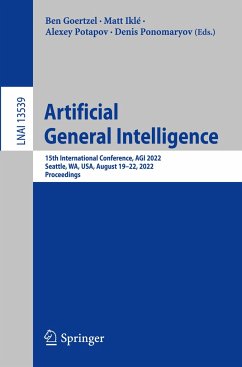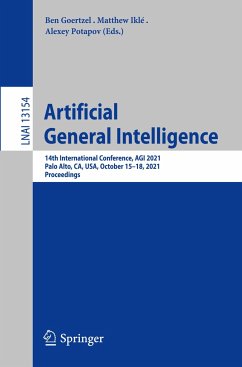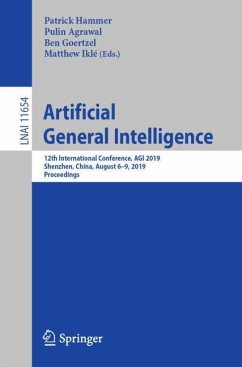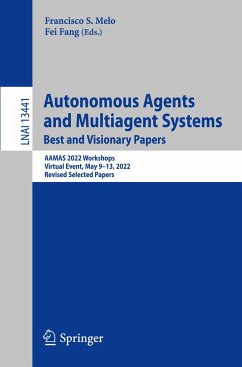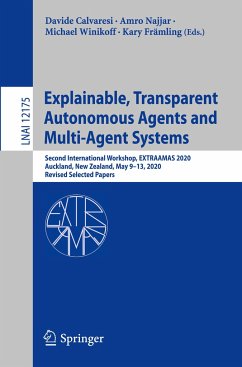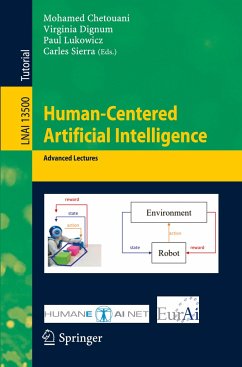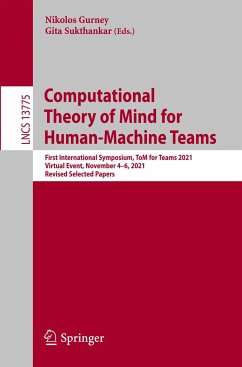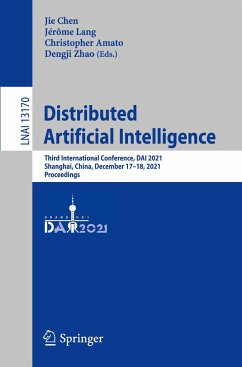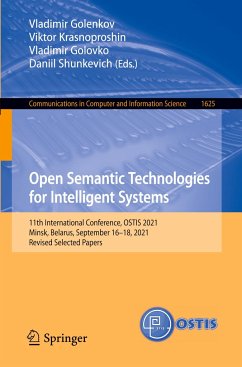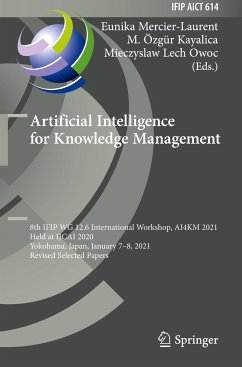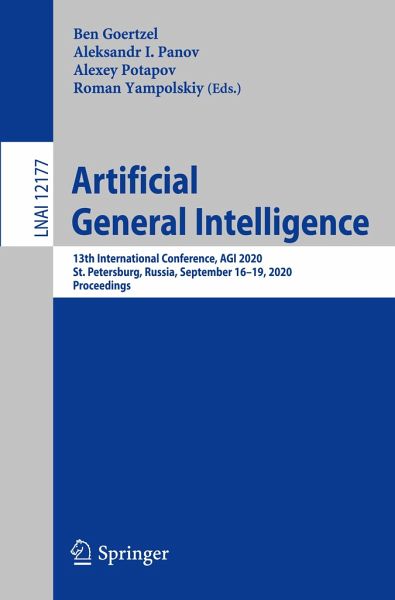
Artificial General Intelligence
13th International Conference, AGI 2020, St. Petersburg, Russia, September 16-19, 2020, Proceedings
Herausgegeben: Goertzel, Ben; Panov, Aleksandr I.; Potapov, Alexey; Yampolskiy, Roman

PAYBACK Punkte
35 °P sammeln!
This book constitutes the refereed proceedings of the 13th International Conference on Artificial General Intelligence, AGI 2020, held in St. Petersburg, Russia, in September 2020.
The 30 full papers and 8 short papers presented in this book were carefully reviewed and selected from 60 submissions. The papers cover topics such as AGI architectures, artificial creativity and AI safety, transfer learning, AI unification and benchmarks for AGI.
The 30 full papers and 8 short papers presented in this book were carefully reviewed and selected from 60 submissions. The papers cover topics such as AGI architectures, artificial creativity and AI safety, transfer learning, AI unification and benchmarks for AGI.





